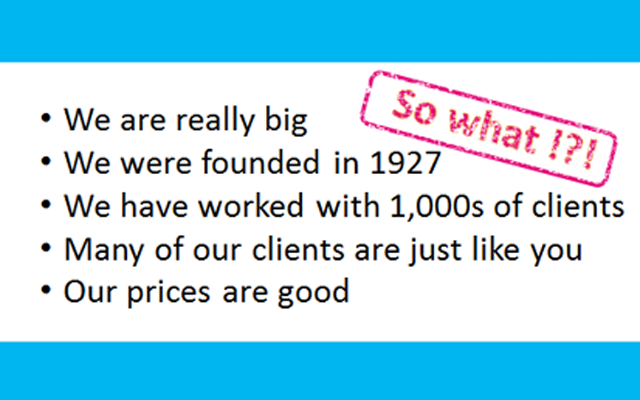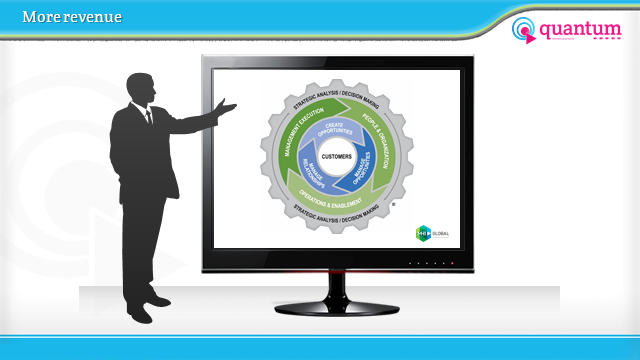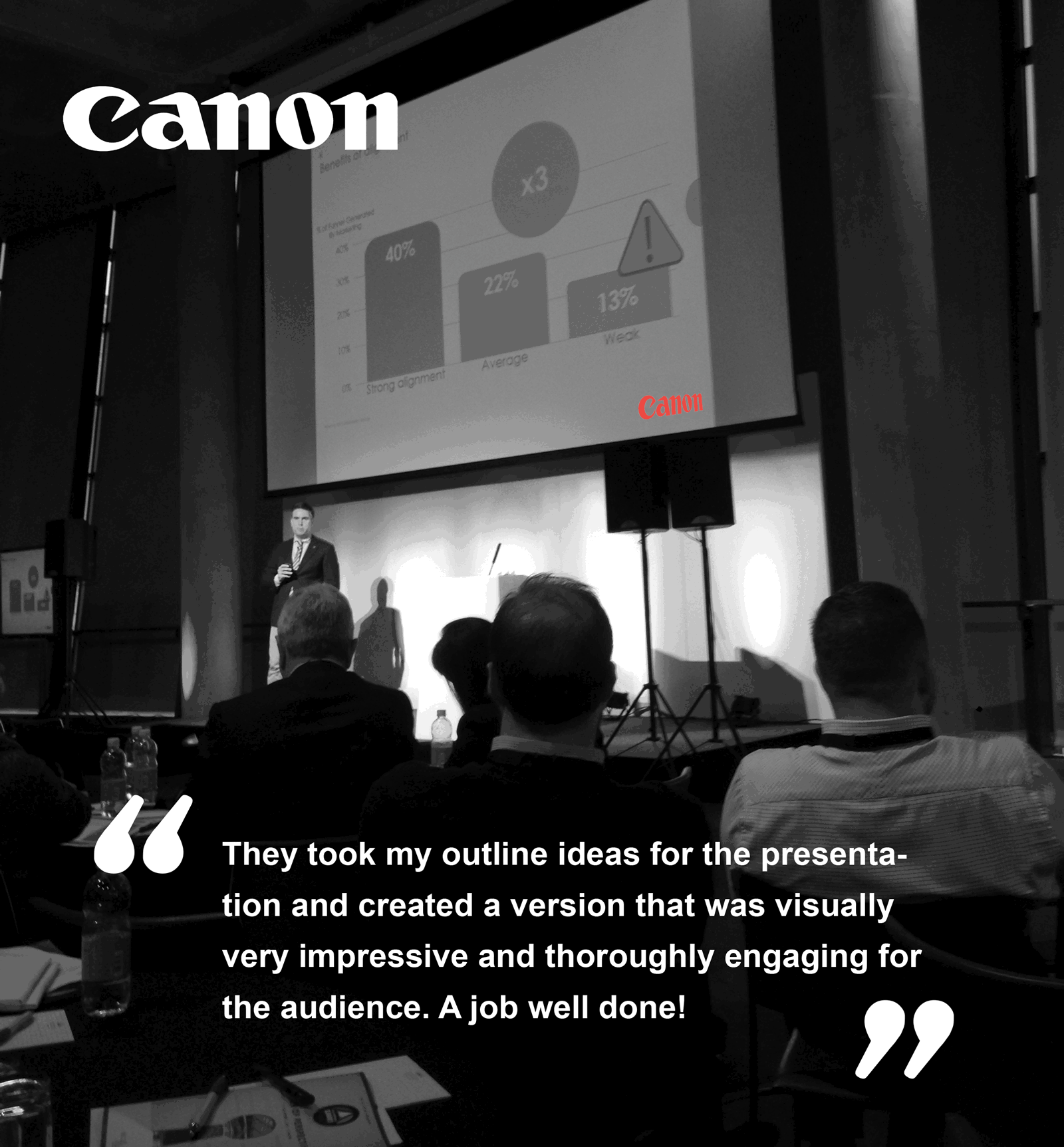It’s so very tempting to do the easy thing … tell your prospects and customers about how great you are. After all, you probably are great. But so what if you are!? Greatness alone does not prove that you will be able to meet your prospect’s needs and underlying business objectives? And a self-centred approach to selling puts buyers off, sometimes forever. So say bye bye to this deal. And the next. And the next.
Selling starts with customers …
… not with you and your organisation. Sure, examples of previous work, case studies, testimonials and your organisational capability are very important, but only once you’ve piqued the interest of your prospect. Without that interest everyone’s time is being wasted. Compel your prospects with stories that draw them in.
Be the Teller

Customers first! Tell a client-centric story
Remember when you were a kid and hearing fairy stories … how on earth can you remember those stories decades later? Because they were made relevant to you by the teller. It felt like you were Jack trying to get back down the beanstalk or that the Big Bad Wolf was coming after you.
It’s really no different in business. Well, it’s a bit different, but when you engage with prospects you are placed in a very privileged position – that of the “teller.” By mutual consent it’s your job to share a story that is compelling, believable and sufficiently moving to generate a subsequent order for you.
How?
The easy way to prepare for a sales meeting is to stick your prospect’s logo on your tried and tested slide deck, jiggle a few slides around and present your offer. This approach can work, but when it does work it’s more by luck than judgement. So be careful. After all, “tried and tested” doesn’t mean that you are using the very best tool for the job, because every sales meeting is different.
Ask: what is my prospect truly interested in?
Make zero assumptions – higher levels of effectiveness require honesty and, unfortunately, preparation. Sometimes quite a lot of preparation.
What Next?
The core of your story is the value proposition which translates as “what’s in it for your prospect?” Not “prospects” generally but this one; the one you are going to meet in a few days’ time.
Now here’s the rub. You can only know what’s in it for them when you have undertaken qualification discussions in advance of your meeting.
What if you can’t get to talk beforehand? Perhaps your prospect won’t engage with you before the meeting you might want to think very seriously about re-scheduling or cancelling all together.
If they are genuinely interested in forging a relationship with a supplier they value then they – the potential customer – need to invest in you too! If they won’t invest qualifying out of the opportunity might be best for everyone.
You will know exactly the right sort of information that you need before the meeting, so be honest with yourself and your prospect by gathering it. But this is also where a combination of skill, experience and common sense kicks in.
No one really wants to be taken through a 25 line questionnaire over the phone, therefore gather your information conversationally and at a pace that the person on the other end of the line feels very comfortable with. You are now helping to make doing business with your company pleasurable – something that will be valued now and in the long term.
Killer Presentations for Customers
Not every sales meeting calls for a presentation, but if both parties have agreed that this is what is going to work you’re in great shape because you can develop a proposition tailored to explicit need.
If your PowerPoint skills aren’t up to scratch our designers may well be able to help you. And if you consistently struggle to convey the right messages / proposition our workshops will get your creative juices flowing again.
Winning Sales Proposals
Now, your meeting is set to go much better than might otherwise have been the case. A few weeks down the line, if all goes well, you should be invited to submit your proposal. Again, the clarity of your value proposition – how the client will demonstrably benefit from your offer – is key.
If you think your value propositions for customers and prospects could be sharper we’d love to hear from you.











